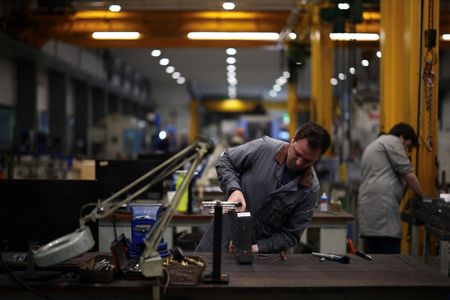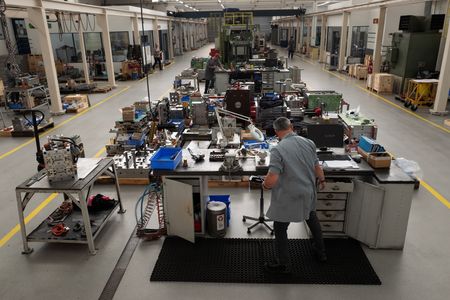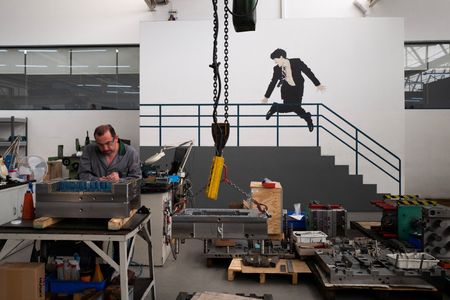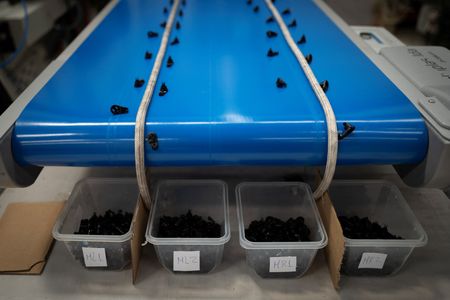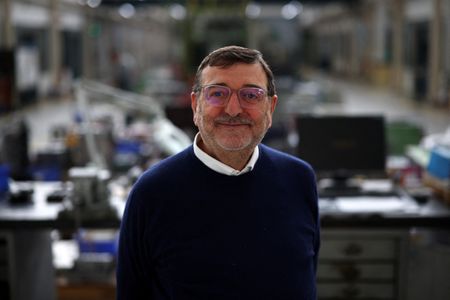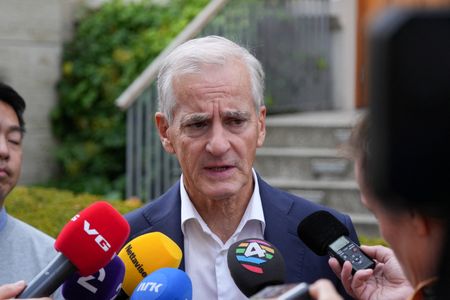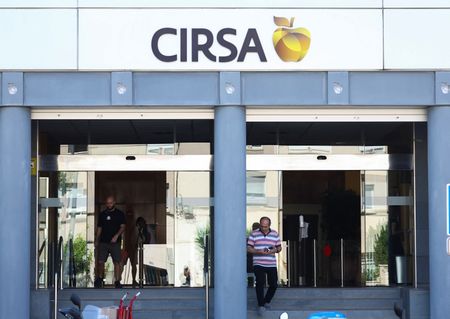By Sergio Goncalves and Miguel Pereira
MARINHA GRANDE, Portugal (Reuters) – For many Portuguese, the hope for Sunday’s general election is pretty simple: a government that can navigate the challenges thrown up by global trade tensions and other geopolitics, and an end to the non-stop cycle of polls every year.
But for sceptical residents of Marinha Grande, a working-class town of 40,000 in central Portugal and a hub for the injection moulding industry, even that seems like wishful thinking.
The vote is the third general election in as many years and comes after a 10-year period of fragile governments, only one of which has had a parliamentary majority but which still collapsed halfway through its term last year.
Luis Simoes, a 36-year-old moulding plant worker, was among those worried that no lasting government would emerge on Sunday, leaving much-needed stability hinging on fragile deals between parties. That, at a time of global trade tensions triggered by Donald Trump’s tariff blitz, and a high domestic tax burden.
“If they (parties) don’t reach an understanding up there at the top of the pyramid, we will suffer here,” he told Reuters at the Iberomoldes plant filled with the hum of precision machines.
The impact of new U.S. tariffs on imports – including from the EU – has barely featured in the election campaign, however, even as Portugal’s net exports already felt the pinch in the first quarter and the economy shrank from the previous three months, setting off alarm bells at Marinha Grande’s big exporters.
Portugal’s moulding industry is Europe’s third-largest after Germany and Switzerland, selling almost 1 billion euros ($1.12 billion) a year mostly to other European countries. Its moulds are used to make plastic toys, cars and aircraft cabin panels.
Iberomoldes President Joaquim Menezes, whose company exports 90% of its output, said he feared trade tensions may affect his big European clients and subsequently his company, while any further political instability at home would only compound such risks and “surely affect our productivity”.
NO MAJORITY IN SIGHT
Opinion polls show the centre-right Democratic Alliance (AD) of Prime Minister Luis Montenegro garnering the most votes but no parliamentary majority, a similar outcome to the previous ballot in March 2024.
There’s also little change for its perennial rival, the centre-left Socialist Party (PS), which is hard on its heels.
Marinha Grande has traditionally voted for the PS but in last year’s election many turned to the far-right Chega party, which won 20.5% of the vote in the region, up from 7% in 2023. The PS won 29.8%, well below the 43.5% it won the year before in the region.
At a national level, Chega has been polling steady to lower since quadrupling its parliamentary representation last year. Its anti-establishment, anti-immigration rhetoric is seen as too toxic for it to serve as kingmaker to any party.
No party has come up with fresh proposals to generate much enthusiasm among the Portuguese or address their concerns.
“Each party is just saying they are the serious ones and the others are unethical or corrupt,” said Samuel Silva, an office administrative assistant in Lisbon. “Europe’s economic woes will reach Portugal sooner or later, but I don’t see any of the major parties talking about it, it doesn’t bring votes.”
Much of the campaign has centred around ethical matters such as the business dealings of Montenegro’s family consulting firm. The issue brought down his government in March but failed to resonate with voters – who still largely consider him the better man for the job, according to opinion surveys. Montenegro has denied any wrongdoing.
VOTER FATIGUE
“People really don’t care that much about the issue. They are fed up,” said political science professor Jose Tomaz Castello Branco of Lisbon’s Catholic University, citing voter fatigue after so many elections.
“There is not that much hope that the future will be different to the present,” he added.
The only potential for some stability appears to lie with the fourth-placed, pro-business Liberal Initiative party, which could garner enough votes to form a majority ruling coalition with Montenegro’s AD, with which it has some affinities.
There could be a prolonged legislative paralysis before yet another election, Castello Branco said. No new general election can be called until at least mid-2026 because Portugal will hold a presidential election next January.
“If you are an optimist, you will hope for the parties to come together the day after the election to form an alliance to rule the country for at least the coming year,” he said.
Retired metalworker Luis Esperanca, 58, held out little such hope. He was angry with what he said was politicians’ reluctance to compromise for the good of the country and criticised a disappointing campaign dominated by “very weak ideas for the future”.
“They think they don’t need to explain anything to anyone, as if everyone were idiots,” he said. “This cannot continue.”
(Writing by Andrei Khalip; Editing by Charlie Devereux and Frances Kerry)


